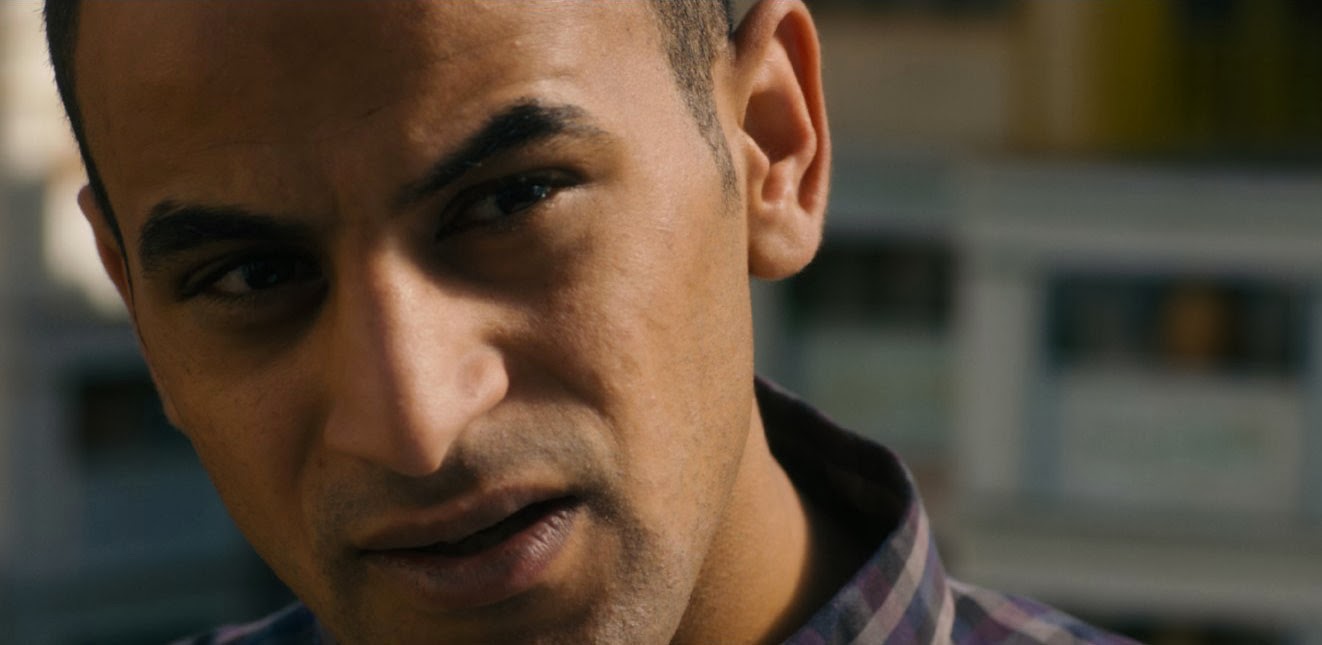What a surprise is BEL CANTO, the new movie directed by Paul Weitz (and which could hardly be farther away in subject, tone and skill from his first film, American Pie!), with a screenplay adapted by Anthony Weintraub and Weitz from the award-winning novel of the same name by Ann Patchett. Mr. Weitz, shown below, has now directed in so many different genres that he is can certainly not be pigeon-holed -- which is undoubted as he wants it. Still, I would in no way have expected to be this strongly engulfed by and then finally moved -- not to tears; at least, not right away -- to the kind of deep, profound sense of possibility, joy and then loss that the performing arts so rarely provide. (Several hours post-viewing those tears unexpectedly arrived; the movie sticks with me, even now, days after viewing it.)
When we finished the film, my spouse at once remarked how much it reminded him of Our Country's Good, that great play by Timberlake Wertenbaker that had a too-short Broadway run back in 1991. In Bel Canto, the humanizing force, rather than residing, as in the play, in the power of theater, is instead found in music, specifically opera. The result is the same: the bringing together of diverse people and ideas into the kind harmony that progressives so desire, and that those in power so often deliberately prevent.
What genre of a film is Bel Canto? Without giving away much of the wonderfully imagined and executed plot, the movie's a mash-up. Part love story(ies), thriller, social/political critique, art-about-art, terrorism (but by whom?) and lots more, the movie puts you in touch with characters who grow and change, finally becoming as memorable as any you're likely see this year (or for that matter last year or next).
Not having read the novel (which is probably better than the film because novels almost always are), I can only judge this movie. What Weitz and Weintraub especially excel at lies in their ability to create the illusion of time passing both artfully and believably so that everything we see here seems viable, given the circumstances and characters.
That sense of days and weeks passing is vital to the tale's credibility, and it is handled here as well as I've ever seen it. The film has been cast exquisitely, too. Though its lead actors -- Julianne Moore (above) as a world-famous opera singer (we hear Renée Fleming on the soundtrack doing the singing) and Ken Watanabe (at left on poster, top) as an uber-wealthy and successful businessman -- are maybe not the most memorable of the characters, Ms Moore smartly captures both this singer's entitlement and her humanity, while Watanabe's eastern reserve and inscrutability slowly, effectively crumble.
The film's most interesting character -- the likes of which movies so seldom bring to life this well -- belongs to the Japanese translator (beautifully played by Ryô Kase, shown above, center), fluent in several languages, who accompanies Watanabe and discovers so much new about himself during the "siege." Also in the fine international cast are Sebastian Koch (below) as a harried Red Cross worker and Christopher Lambert (in the penultimate photo, below) as a hostage who proves multi-talented.
The "terrorists" are almost equally memorable. There are quite a few of these, and each is brought to fine and specific life with a few smart brushstrokes by actors who make the most of every one of their moments. Especially strong are Tenoch Huerta (as the Commander) and Maria Mercedes Coray, shown at right in the photo at bottom (who plays the young female recruit named Carmen).
The film is full of little ironies, sometimes involving language and translation. One of the richest and funniest is what most unites the film's missing dictator with some of the terrorists in this Latin American country. Of course, it's a telenovela.
As it moves along, the movie takes on almost the quality of a long-hoped-for fantasy -- one into which, from it outset, we know that reality must finally intrude. Until then, a wondrous little society is created that may take a permanent place in your mind and heart. TrustMovies found Bel Canto the most beguiling, appealing and finally moving piece of cinema he's seen in a long while. No other film has made him think, feel and care this much about such a diverse set of characters living through such a singular event.
From Screen Media Films (by far the best movie I've yet seen from this particular distributor) and running just 102 minutes, Bel Canto opens this Friday, September 14, in New York City (at the Cinepolis Chelsea) and in Los Angeles (at Laemmle's Monica Film Center). Here in the Miami area, the film opens the following Friday, September 21, at the Bill Cosford Cinema and in the weeks to come will hit another 25 cities and theaters nationwide. To see all currently scheduled playdates, cities and theaters, click here and scroll down.





























































